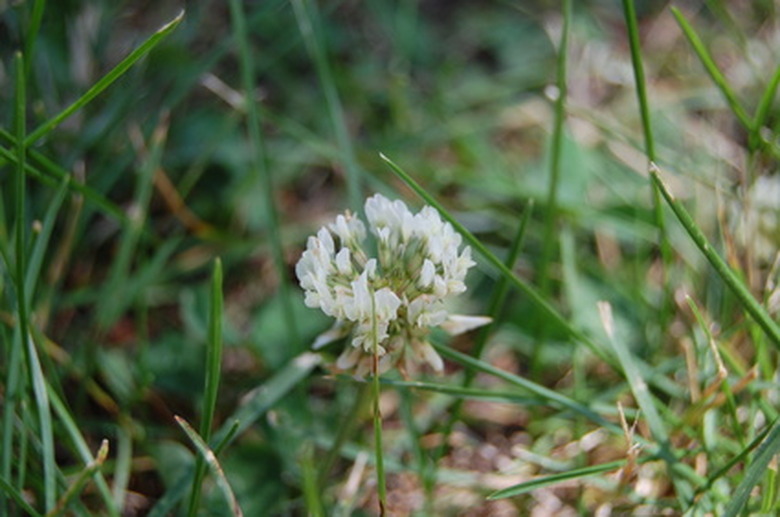Active Ingredients In Roundup
Pulling weeds is hard on the back and knees, and can often miss the root, allowing the weed to grow back. One of the easiest ways to eradicate weeds is with an herbicide. There are many to chose from, but Roundup is one of the most commonly available. You can find it at almost any lawn and garden store and it comes in a variety of strengths and target formulas.
Glyphosate
Roundup is known as a non-selective herbicide and considered to be fairly harmless to the environment, food sources and animal life. It works on most persistent weeds and its main active ingredient is glyphosate. Glyphosate is an acid but for the application in Roundup it is presented as its potassium salt. The amount in the solution is 5.5 lbs. per gallon. Roundup is a post-emergent herbicide, which means you apply it when the weed is growing. The glysophate targets the EPSP synthase, a key enzyme plants need to make amino acids, a crucial building block of their cells. Without the ability to make amino acids, the plant cells starve to death. The herbicide penetrates foliar structures, such as leaves, but does not penetrate woody stems or trunks, which makes it safe to spray around trees. Glyphosate quickly breaks down into naturally occurring carbon dioxide and nitrogen, rendering it harmless.
- Pulling weeds is hard on the back and knees, and can often miss the root, allowing the weed to grow back.
- Roundup is a post-emergent herbicide, which means you apply it when the weed is growing.
Pelargonic Acid
There are many varieties of Roundup formulated for different uses. In its ready-to-use form, Roundup contains less glyphosate and has the addition of pelargonic acid. Pelargonic acid helps foliar penetration and improves spray control. It is a fatty acid and enhances adherence of the product to speed up penetration through the leaves' cellular structure.
Diquat
Diquat has a similar purpose as the pelargonic acid, in that it increases cellular penetration at the foliar level. It is found in the concentrated form of Roundup and is useful on weeds with waxy leaves, such as ivy. The chemical breaks down the cell membrane on the leaf, allowing faster penetration of the glyphosate. This product must be mixed correctly and care should be taken to follow the instructions and avoid over-spray on sensitive plants.
- There are many varieties of Roundup formulated for different uses.
- Diquat has a similar purpose as the pelargonic acid, in that it increases cellular penetration at the foliar level.
Imazapic
Roundup also comes in a formula that adds weed control for up to four months. The ingredient that assists this claim, is imazapic. Imazapic remains in the sprayed area after rain and watering. The chemical can be deadly to tender annuals and perennials, so take extreme caution when spraying. Avoid new planting for four months, as the weedkiller remains active during that time.
